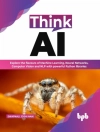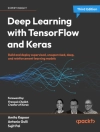The most up–to–date and comprehensive introductory ASP.NET book you’ll find on any shelf, Beginning ASP.NET 3.5 in C# 2008 guides you through Microsoft’s technology for building dynamic web sites. This book will enable you to build dynamic web pages on the fly, and it assumes only the most basic knowledge of C#.
The book provides exhaustive coverage of ASP.NET, guiding you from your first steps right up to the most advanced techniques, such as querying databases from within a web page and tuning your site for optimal performance. Within these pages, you’ll find tips for “best practices” and comprehensive discussions of key database and XML principles you need to know in order to be effective with ASP.NET. The book also emphasizes the invaluable coding techniques of object orientation and code behind, which will start you off on the track to building real–world web sites right from the beginning—rather than just faking it with simplified coding practices.
By the time you’ve finished the book, you will have mastered the core techniques and have all the knowledge you need to begin work as a professional ASP.NET developer.
Table of Content
Introducing .NET.- The .NET Framework.- The C# Language.- Types, Objects, and Namespaces.- Developing ASP.NET Applications.- Visual Studio.- Web Form Fundamentals.- Web Controls.- State Management.- Error Handling, Logging, and Tracing.- Deploying ASP.NET Applications.- Building Better Web Forms.- Validation.- Rich Controls.- User Controls and Graphics.- Styles, Themes, and Master Pages.- Website Navigation.- Working with Data.- ADO.NET Fundamentals.- Data Binding.- The Data Controls.- Files and Streams.- XML.- Website Security.- Security Fundamentals.- Membership.- Profiles.- Advanced ASP.NET.- Component-Based Programming.- Caching.- ASP.NET AJAX.
About the author
Matthew Mac Donald is an author, educator, and MCSD developer who has a passion for emerging technologies. He isthe author of more than a dozen books about .NET programming. In a dimly-remembered past life, he studied English literature and theoretical physics.












